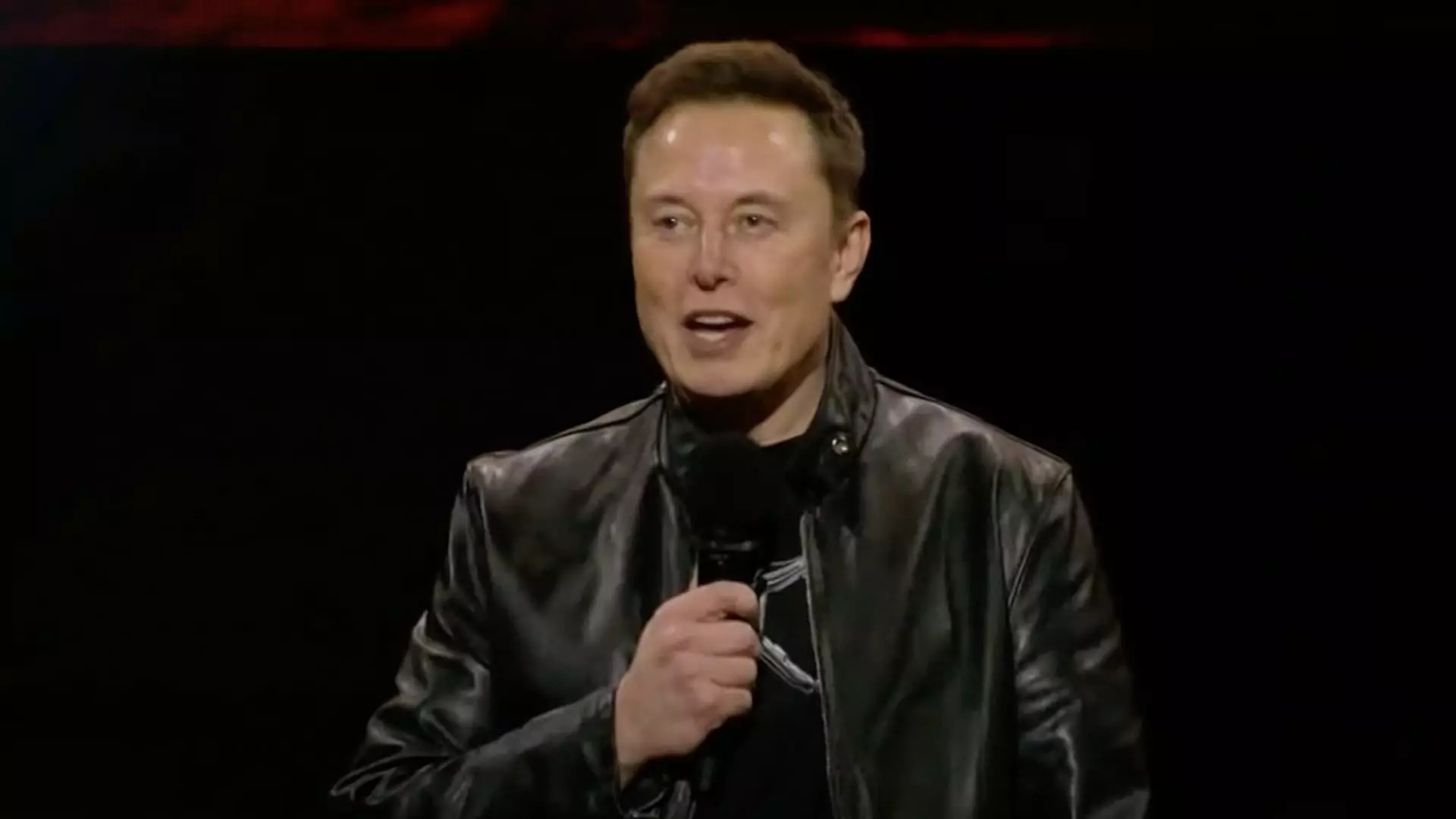Tesla is on the verge of reporting its third-quarter earnings, and the anticipation in the financial market is palpable. Analysts, according to consensus estimates from LSEG, suggest that the electric vehicle (EV) manufacturer will announce earnings per share (EPS) of 58 cents. Additionally, the revenue forecast stands at approximately $25.37 billion. These figures indicate a keen interest in how Tesla’s operational metrics will stack up against the challenges it has faced, particularly concerning vehicle deliveries.
In a recent report, Tesla disclosed that it delivered 462,890 vehicles in the third quarter, a modest 6% increase compared to the same period last year. Despite this growth, the figure fell short of market expectations, marking the third consecutive quarter of declining year-over-year deliveries. This ongoing trend prompts scrutiny regarding the company’s sales strategies and overall market performance, especially as Tesla has ramped up discounts and incentives to bolster its sales figures amid intensifying competition.
Competitive Pressures and Strategic Adjustments
One cannot overlook the intense competitive landscape Tesla finds itself in, particularly in China. Notably, companies such as BYD, Geely, Li Auto, and Nio are gaining traction, which poses a real challenge to Tesla’s dominance in one of the world’s largest EV markets. Furthermore, in the U.S., traditional automakers like Ford and General Motors have begun intensifying their efforts in the EV space, complicating Tesla’s market position. Analysts at Jefferies have pointed out that Tesla’s operational performance reflects stagnation in the gap between it and legacy Original Equipment Manufacturers (OEMs), indicating a pressing need for strategic recalibration.
The firm highlighted that Tesla has seemingly outgrown its capacity constraints. Thus, the years ahead may present subdued growth challenges as core models become dated and scaling both variable and fixed costs proves complex. Consequently, Jefferies analysts recommend a hold on Tesla stock, reflecting caution amid uncertain growth projections.
Musk’s Political Involvement and Its Implications
Elon Musk’s political activities have also brought added scrutiny to Tesla. His campaigning for former President Donald Trump raises important questions for shareholders, especially in light of the Republican candidate’s stance on issues like federal spending on electric vehicles and environmental regulations—areas that have historically benefitted Tesla. In a recent event, Musk made controversial remarks regarding government reliance, asserting, “We should not trust the government.” This perspective raises concerns for investors about the potential ramifications of Musk’s political alignments on Tesla’s corporate strategies and stock performance.
Shareholders have expressed their apprehension regarding how Musk’s political campaigning might intersect with Tesla’s operational goals. Engaging with these complexities will be critical for the company as it navigates a tumultuous political landscape that could affect consumer perception and policy matters impacting EVs.
Investors are not only interested in immediate earnings but also have pressing questions about Tesla’s long-term technological ambitions. With high expectations for the development of robotaxis, autonomous driving software, and humanoid robots, the upcoming earnings call will likely address these concerns. The promise of groundbreaking technologies might serve as a beacon of hope for Tesla amid its short-term challenges.
Moreover, the unveiling of the Cybertruck, although marred by quality issues, has seen sales momentum, with estimates suggesting over 16,000 units sold in the U.S. in the third quarter. Despite the initial setbacks, the strong sales figures indicate a potential rebound in consumer interest, suggesting that while Tesla may face short-term challenges, innovative products could rekindle momentum.
As Tesla approaches the release of its earnings, the broader implications for its market position become clearer. Executives have hinted at a reduced delivery growth rate in 2024 compared to previous years. The ongoing upheaval in the EV market, internal production challenges, and external competitive forces cast a long shadow on Tesla’s growth trajectory.
With shares down 13% year-to-date—contrasted sharply with the Nasdaq’s 23% gain—the stakes are high for Tesla’s leadership as they aim to reassure investors and chart a path for sustainable growth. The earnings call will be pivotal not only for immediate financial performance but also for investor sentiment going forward. Emphasizing transparency, strategic insight, and an unwavering commitment to innovation will be paramount for Tesla to regain ground and reassure its shareholders in a rapidly changing automotive landscape.

